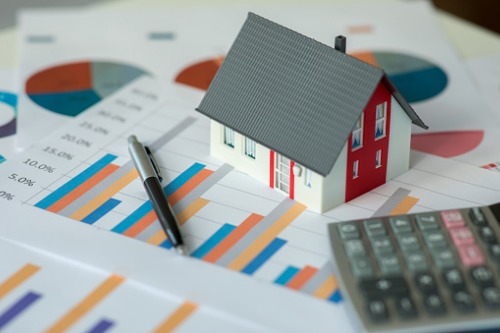

Stamp duty is a controversial subject among homebuyers and property professionals. While it is, undoubtedly, a vital source of income for state governments, many feel it constrains the housing trade and stops people from moving as easily as they might like.
It can be a confusing topic, too, with exemptions available but not accessible to all, and everyone trying to work out what the best option might be for their specific situation.
First up, there’s the obvious question: what is stamp duty? Simply put, it’s the tax that you pay on transferring a home that theoretically covers the cost to the government of changing the documents concerning your property. This is why it is also sometimes known as ‘transaction duty’, as it covers, well, the duty due on a transaction. It’s also charged on car regos, hire purchases and other deals that require the government to incur transaction costs.
The Federal Government in Canberra doesn’t collect stamp duty, and devolves it to the states, which is why there is such a wide and varying landscape regarding how much it costs and who has to pay it: essentially, every jurisdiction in Australia gets to decide what they charge and which home buyers are required to stump up. That’s why stamp duty calculators are so complicated.
The next logical question is: how much? As discussed above, that largely depends on where you live and what your personal situation is. In every jurisdiction, stamp duty is calculated based on the value of the property, so if the house that you want to buy is cheaper, then the cost of transacting will also be cheaper.
Beyond that, it simply depends on where you want to live, which means that you can’t really control the amount that you pay that much. Annoying as paying it is, you’re unlikely to move to Queensland, home of the cheapest stamp duty in Australia, simply to avoid it, so you next best bet is working out whether it is due at all.
The good news is that plenty of people can avoid stamp duty altogether. Here’s how: if you’re a first home buyer and your property isn’t that expensive, then you can certainly get out of paying, or pay less. The chances are that, if you are in this demographic, you’re also the most likely person to not be able to pay it, which is why this exemption exists.
If you’re getting divorced and need one part of the split to take over the property, then this is also grounds for an exemption. Older people who have retired, plus the people that care for them, are sometimes also able to get out of paying stamp duty.
Stamp duty is a vital source of income for the government, which is why it is so hard to avoid paying. The money goes to funding the government and, naturally, they are quite reticent to just give up an income stream that people often don’t notice as it gets packaged in with their home loan.
Given that likely you’ll have to pay stamp duty, it certainly helps to pay it promptly as well. Those states vary – in NSW, you get 3 months to sort it out; in SA, it’s pay on the day – but the bottom line is to know when it is due and make sure that you don’t miss that date, as the penalties for late payment or non-payment are steep and can incur interest.
The short answer would be: mostly, yes. The first home buyer cohort is the one that is most likely to get a blanket exception, as they are the group who struggles most to pay it due to rising house prices and the problems of getting a deposit together.
Given that raising the capital to get a mortgage in the first place is largely the hardest part of getting a home loan, it is helpful that buyers can get out of paying an extra percentage of the price in stamp duty.
There are reductions available for first home buyers in most states and total exemptions in some for those with a property under a certain price point, or for specific types of home, such as vacant land, off-the-plan homes and farms.
As discussed above, there are certain types of people (first home buyers, divorcees and senior citizens) who can avoid stamp duty entirely in certain states.
In the ACT, lower income buyers can avoid it, while in NSW, WA and Victoria, if your property is below $800,000 in value, you might be exempted or eligible for a reduction. The media house price in Sydney and Melbourne is massively above the thresholds, however, so the chances are that this plan won’t work for you.
In the NT, Queensland, Tasmania, reductions are available but not full exemptions. In South Australia, you’re flat out of luck: there are no exceptions.
So what if someone is giving me the property? Unfortunately, you still have to pay. The same costs that cause stamp duty to be paid in the first place - i.e. the transaction costs to the government – still occur whether you are buying it or giving it away, so in turn, the stamp duty story is the same.
Again, the best option is to look for the same exemptions as you would if you were buying the property normally and hope that you fall into one of those categories. If you are being gifted the property by a parent for inheritance reasons, that might not help, but if you are receiving it as part of a divorce, it certainly might play in your favour.
